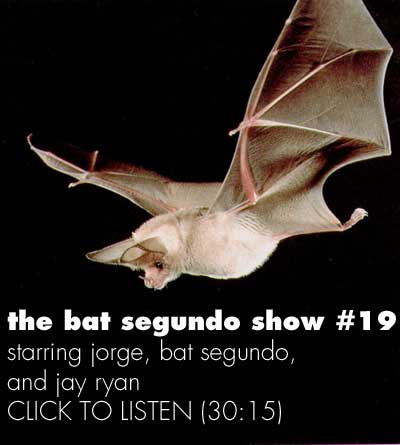It sits in an oblong glass case, five of its six sides bound in a birch flame frame, a foot at one end and some forty or so feet at the other. I don’t know if it was meant to be exposed like this, caged and paraded like a newly tamed lion at a zoo. The harsh overhead lights reflect off the glass, causing one to squint at the small type. One must shift carefully when studying it on the right-hand side, for as others appear on the left, their shadows darken the ochres of fifty years’ fade, with the pitch and Kerouac’s small pencil marks waning into a wavering sea of onyx. One is dazzled, both by the manuscript’s telling details and the Barnum-like excess with which it has been unveiled to the public.
The manuscript is taking up residence for the next three months at the lower level of the San Francisco Main Library. No photographs are allowed. But it’s there for you to look at gratis. Now that it’s fallen into private hands, presumably the idea here is to take in this seminal document into one’s head and remember as much as you can until you see it again.
I look at other spectators. There is a thirtyish man blasting Sufjan Stevens in his ears and I wonder if he’s tapping his feet to the music or the words. I wonder if he’s clued in. There is a gaunt man with long stringy white hair which descends behind a rucksack. He’s at the room’s entrance, hesitant to cross over, as if he might disrupt the swing of an unseen censer. My friend and I are both troubled by what Kerouac has become. His reputation sits within some gray area between a questionable cult and something that is bona-fide literary. We speculate. Give him ten more years and he’ll be fully legit. We both read On the Road as teenagers, marveling at its fuck you authenticity, its rolling words puncturing us, reinvigorating us like blunt trills. And now here we are years later seeing how it all began and how On the Road is being redefined for the public, wondering how phony we’ve become as the years have rolled by and the responsibilities have piled up. In the end, who are we to declare this clownish presentation phony?
Peter Coyote’s voice booms from the southeast corner, a ghost from a 1985 documentary I saw many years ago, clashing against the blown up black and white images of wispy and often gloomy figures identified as Kerouac’s friends. But I couldn’t care less. For the manuscript beckons me like a mystical parchment. It was, it is, my religion. On the room’s west side, its beginning is loose, with the other end flowing long long long into a roll that ends at an unknown point deep inside a taut roll.
Kerouac used a typewriter with a small typeface. The type is perhaps 9 or 10 point. What’s amazing to me is how neat the manuscript is. Because Kerouac was a hard drinker and the text was banged out quick, I expected some sloppiness. But some obsessions go above and beyond debilitations. Kerouac was determined to use every square millimeter of this page extending into infinity. One sees that Kerouac didn’t care too much about vertical alignment. The left edge trails in a slight diagonal until Kerouac reaches the point where he must reset the typewriter. But what’s amazing is that the next line is set up within half a milimeter from the previous line. Tight, precise, continuous. The words “Go go go” that were shouted to Ginsberg when he first read “Howl” in front of a crowd might equally apply to a hypothetical spectator peering over Kerouac’s shoulder back in the day.
There are no breaks. No breaks in the dialogue, no breaks in the long paragraph escaping like a snail into a shell. One observes Kerouac’s paragraph marks pointing out how it all works for the typesetters. But in banging out this draft, the man clearly viewed white space as a hindrance. And then there are the interesting choices:
the fear fears of god
Clearly a Kerouac flourish. Only Kerouac would transform humanity’s fears into plural form. For the hard-core Kerouac crowd matching up the real people with the character names, the manuscript offers a treasure trove of crossouts and disguises. Should Kerouac refer to his girl by name? Hell no. Then again maybe it’s okay. Should he mention that Iowa town he crashed out in? These indecisions hovers over the manuscript. I should have brought the finished text to compare the roll against the book. But in the end it hardly matters. I look at the roll and see a man who got it all out and somehow created a masterpiece.
There are long stretches without a single pencil mark and then there are the deliberate efforts to reinvent the written word:
when there were no cars were coming
Yes, that’s it, Jack. Cut straight to the point. No bullshit. Get it out. Keep it going to the end of the page.
Go go go.
That’s what it’s all about.


